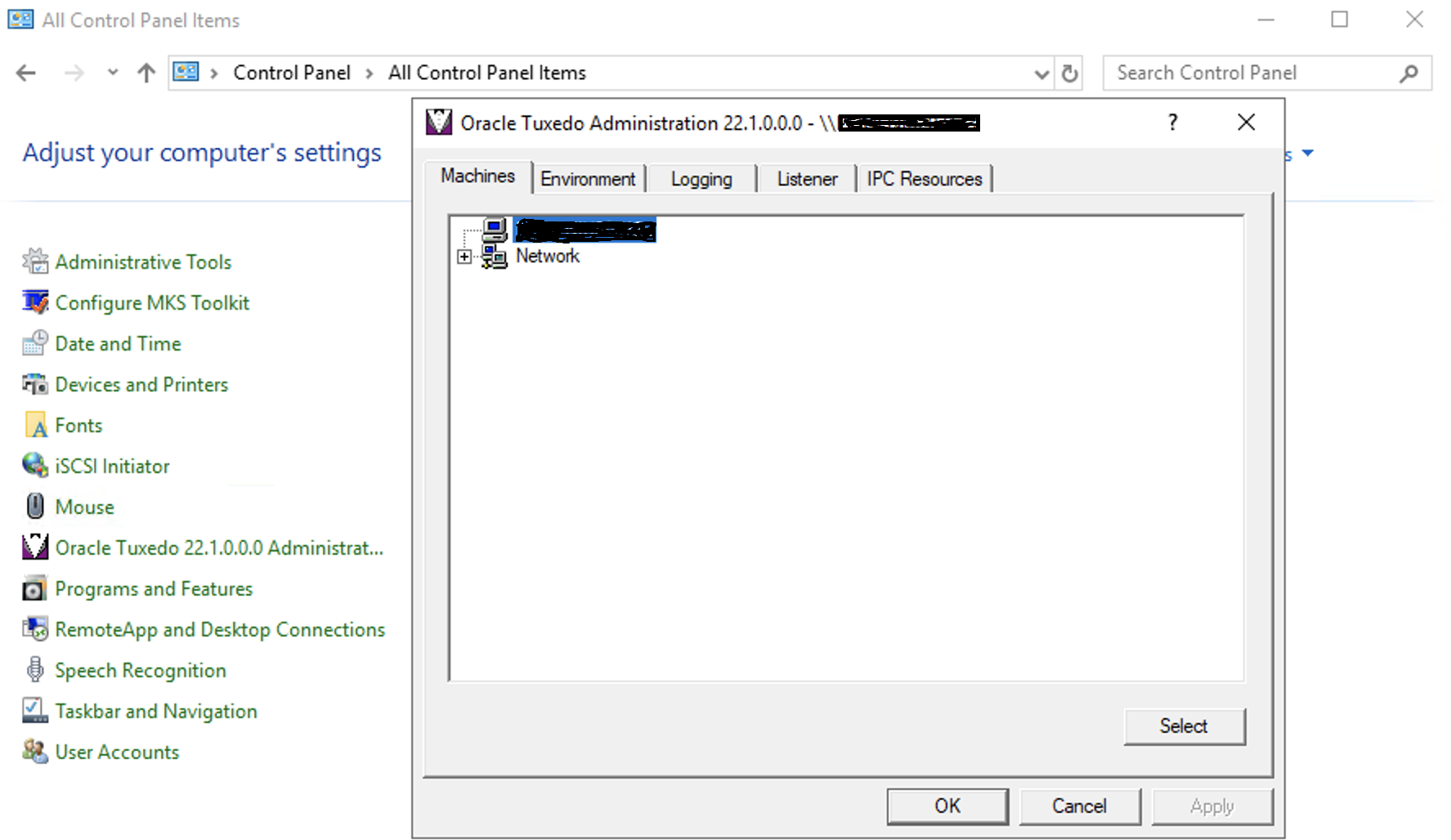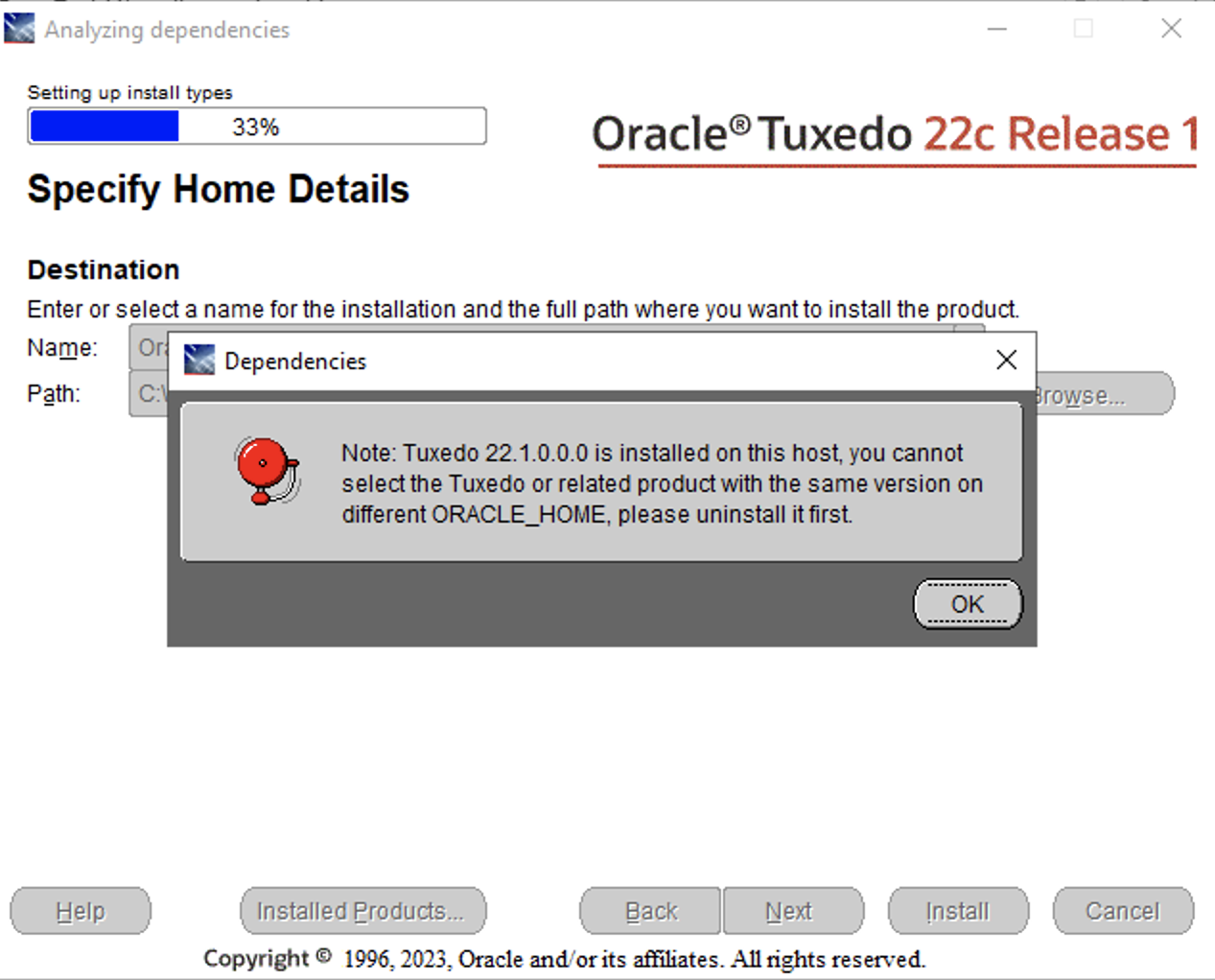2.8 Reviewing the Windows Server Registry Content
The Windows Server Registry is the repository for all hardware, software, and application configuration settings for the Windows system. During the Oracle Tuxedo installation, the installer program writes general installation information as well as IPC Resource values to the Registry. The structure of the Registry relevant to Oracle Tuxedo is as follows:
HKEY_LOCAL_MACHINE\Software\ORACLE\Tuxedo\<version>\...
DeveloperEnvironmentSecurity
To view this structure, choose Start → Run to launch the Run dialog box, enter Registry Editor, and click OK to launch the Registry Editor window.
If Oracle Tuxedo 22c Release 1 is installed successfully, then Windows Service ORACLE ProcMGR V22.1.0.0.0 and TUXEDO 22.1.0.0.0 Listener on Port 3050 are installed.
If Oracle Tuxedo 22c Release 1 (22.1.0.0.0) is installed successfully, then Oracle Tuxedo 22.1.0.0.0 Control Panel is installed as below:
Figure 2-1 Control Panel Change

If your installation detects an earlier installation of Oracle Tuxedo 22.1.0.0.0 in your system, then the following error message is displayed:
Figure 2-2 Earlier Version Detected Error Message

The Developer key stores product information, including the major and minor version numbers of the release, and user and company names.
The Environment key stores the locations referenced by the Oracle Tuxedo environment variables set on your Windows system. It also stores other values such as IPC resource settings.
The Security key holds the access permissions for Oracle Tuxedo processes and services. The following permissions are mandatory:
- Any user who runs
tlisten(1)must have read access permissions. - The account under which the
Oracle ProcMGRservice is running must have read access permissions.
Oracle recommends that the Administrator have full control permissions.
Parent topic: Installing Oracle Tuxedo Using GUI-Mode Installation